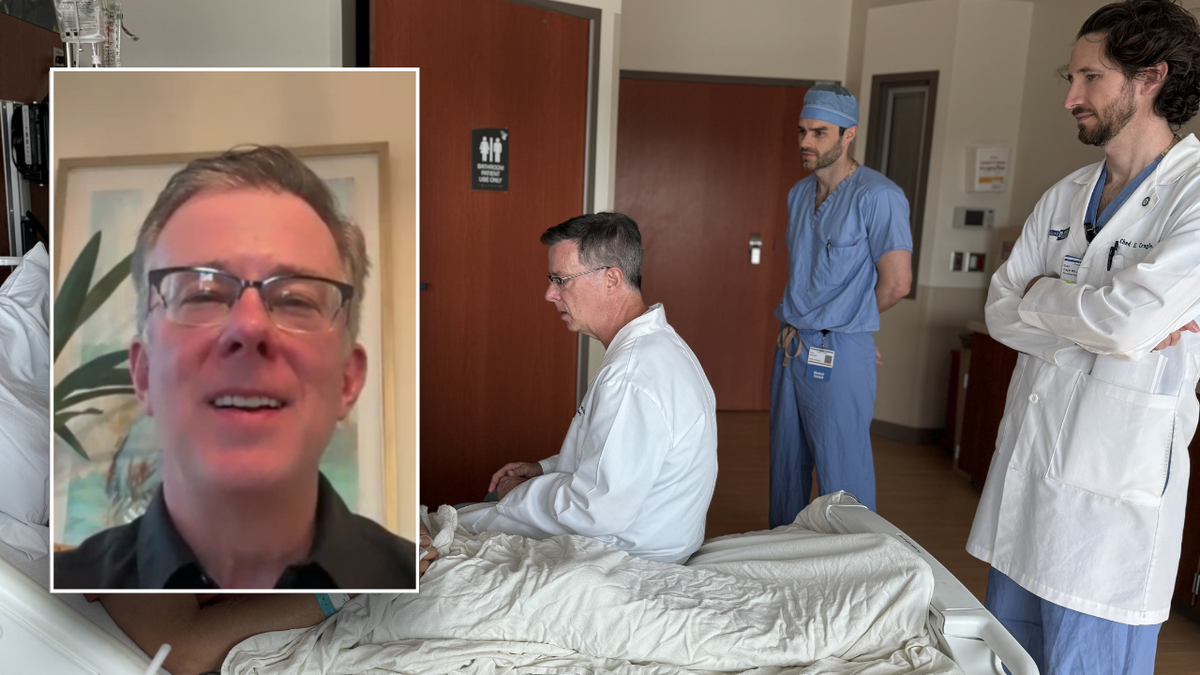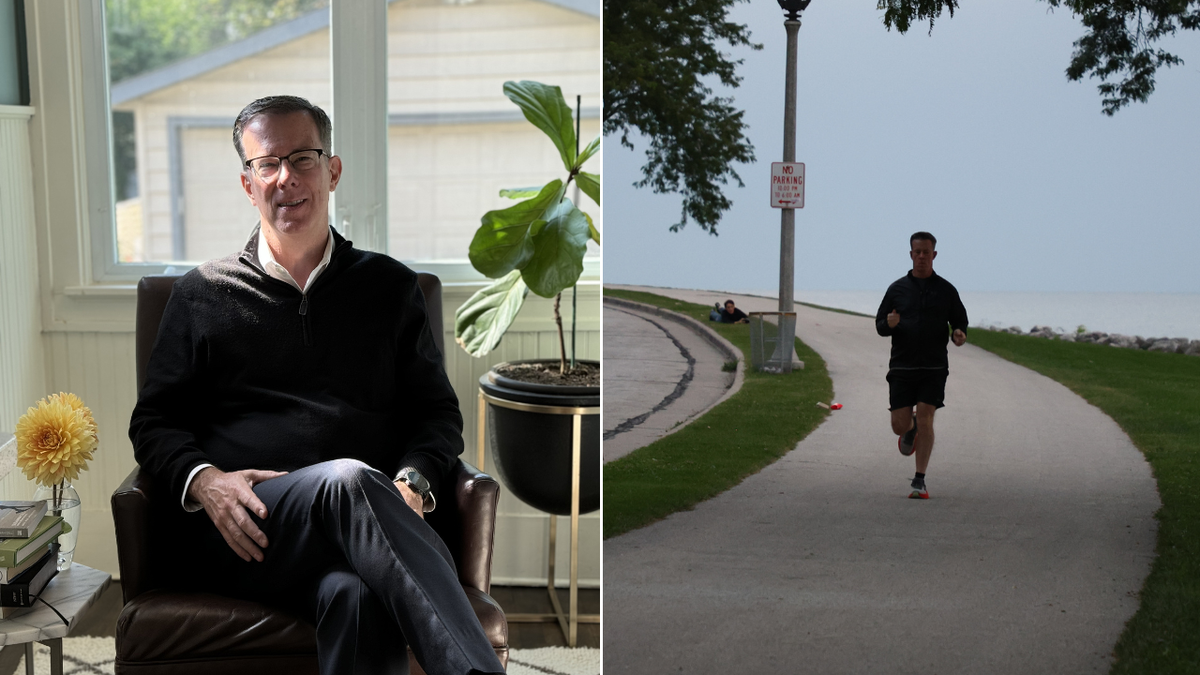Doctor and cancer survivor gears up to run 7 marathons on 7 continents in 7 days

A Wisconsin doctor is gearing up for the feat of a lifetime in order to spread awareness about the most pervasive cancer impacting young men.
Dr. T. Clark Gamblin, a surgeon in Milwaukee, spoke with Fox News Digital about his upcoming participation in the World Marathon Challenge. The competition involves running seven marathons on seven continents – seven days in a row.
The first marathon will take place in Antarctica on Jan. 31, 2025. From there, Gamblin and other participants will travel to Cape Town, South Africa; Perth, Australia; and Dubai, UAE.
THESE 17 CANCER TYPES ARE MORE COMMON IN GEN X AND MILLENNIALS, AS STUDY NOTES ‘ALARMING TREND’
From there, Gamblin will jet to Madrid, Spain, and Fortaleza, Brazil, before running a final race in Miami. He and his fellow marathon runners will have logged 183 miles over the course of a week.
Dr. T. Clark Gamblin, a cancer surgeon who battled testicular cancer, is running in the World Marathon Challenge, which involves running seven marathons on seven continents – seven days in a row. (Jan Gamblin, Ph.D.)
The fast-paced nature of the competition means that it won’t exactly be a relaxing vacation for the participants.
“Over the course of the seven days, we’ll spend about 60 hours on the plane,” Gamblin said. “So it’s running, and it’s plane, and it’s running, and then it’s plane.”
“If you’re prepared and you train correctly, it’s not some Herculean feat.”
While it may seem physically impossible for a human to run seven marathons in seven consecutive days, the World Marathon Challenge has taken runners across the world for nearly a decade. Gamblin began training for the race a year ago.
“It’s a physical challenge, there’s no doubt about it, but there are much more physically demanding things that people have done,” he said. “If you’re prepared and you train correctly, it’s not some Herculean feat.”
AFTER A BREAST CANCER DIAGNOSIS, HERE ARE 10 IMPORTANT THINGS YOU SHOULD DO, EXPERTS SAY
Gamblin has a whole team behind him. The World Marathon Challenge organization handles the logistics of all participants’ flights and hotels. A cancer surgeon, Gamblin also enlisted the help of a dietitian at his hospital to help him meet his protein and fluid goals.
He also has a physical trainer to help with injury prevention — but the person who has helped Gamblin the most, he said, is his wife.

Dr. T. Clark Gamblin spoke to Fox News Digital about his participation in the World Marathon Challenge. (Fox News Digital / Jan Gamblin, Ph.D.)
“She’s like my No. 1 cheerleader,” Gamblin said. “She’s not a big runner, but she’s a huge part of helping me get ready for this and preparing me for it.”
“But then right behind her would be my running coach, a dietitian and a physical therapist. So it does take a team to get ready for something like this.”
COVID-19 VIRUS COULD ATTACK CANCER CELLS AND SHRINK TUMORS, NEW STUDY SUGGESTS
Gamblin, who specializes in liver and bile duct cancer, became interested in running marathons as a medical school student. During the World Marathon Challenge, he will be running for the Testicular Cancer Awareness Foundation.
The cause is near to his heart, as Gamblin is a cancer survivor himself – he was diagnosed with testicular cancer in 2018 after noticing a lump.

Gamblin has been working with a dietitian and a physical trainer to prepare for the seven-day marathon challenge. (Jan Gamblin, Ph.D.)
“I thought it was probably nothing, but I was really diligent about it and checked it out very quickly and discovered it was testicular cancer,” he explained. “And testicular cancer is the No. 1 cancer that affects males aged 15 to 45.”
CLICK HERE TO SIGN UP FOR OUR LIFESTYLE NEWSLETTER
One out of every 250 men will develop testicular cancer in their lifetime, according to the Testicular Cancer Awareness Foundation.
“I went from being a cancer surgeon and giving all this advice, to having to take the advice I had been giving and apply it in my own life,” Gamblin noted.
“The most intriguing one is the Antarctica race … it’s going to be such a unique environment and climate to run in.”
After going through chemotherapy and two operations, he has now been cancer-free for four years.
Gamblin’s desire to spread awareness has fueled the long and arduous training he has gone through to prepare for the 168-hour-long feat.
Despite the challenges, he said he looks forward to the simple pleasures of the race, such as getting to know his fellow runners.

Gamblin will run a marathon on every continent, including Antarctica, starting in January. (Jan Gamblin, Ph.D.)
“It’ll be such a unique group of people, too,” he said. “I’m prepared to make some lifetime friendships and hear other people’s stories.”
Gamblin is documenting his marathon journey through his Instagram account, @tclarkgamblin. He’s most excited about running through Antarctica.
For more Lifestyle articles, visit www.foxnews.com/lifestyle
“So few people have run marathons there,” he said. “It’s going to be such a unique environment and climate to run in.”
In Miami, Gamblin will get to see his family at the finish line.

Gamblin said that he hopes his story encourages others to achieve their potential. (Jan Gamblin, Ph.D)
“I think that far too often, we don’t set our goals high enough in life,” the doctor said. “We don’t risk enough …This is a risk, it is a reach for me.”
The doctor said he aims to inspire other people to also set their sights higher than they normally would.
CLICK HERE TO GET THE FOX NEWS APP
“Your body will in many cases do what the mind tells it to do,” Gamblin added.
“And so I think we can challenge ourselves and push ourselves far beyond … the limits that we set.”




